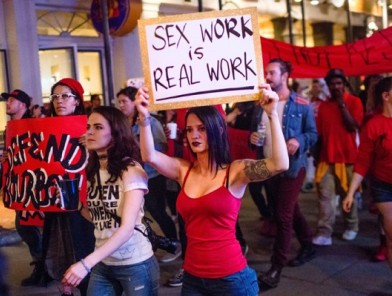When we think about what makes a city thrive, images of gleaming skyscrapers, bustling markets, cultural festivals, and thriving businesses usually come to mind. Yet beneath this familiar surface lies an often overlooked and misunderstood force quietly shaping the city’s heartbeat the sex industry. From escorts and prostitutes to exotic dancers and adult entertainers, this multifaceted sector is deeply woven into the fabric of urban life, influencing its economy, social dynamics, politics, and culture in profound and complex ways.
The Hidden Economic Powerhouse
Contrary to popular perception, the sex industry is not just a fringe or underground phenomenon; it is a significant economic driver in many urban areas. Whether it’s high-end escort agencies catering to affluent clients, street-based sex workers servicing a different clientele, or dance clubs and adult entertainment venues, these businesses generate substantial revenue that ripples throughout the city.
Escort services, for instance, often employ dozens of people behind the scenes from managers, marketers, and website operators to security personnel and cleaning staff. Brothels, massage parlors, and strip clubs similarly support a wide network of suppliers and service providers, including laundries, beverage distributors, and transportation companies. This interconnectedness means that the sex industry is embedded in the local economy, feeding other sectors and creating jobs beyond those immediately visible.
Moreover, the cash flow generated by sex work often finds its way into legitimate businesses and investments, contributing to real estate development, hospitality, and retail sectors. This infusion of capital can help revitalize neglected neighborhoods or sustain nightlife districts, which are vital to the city’s vibrancy after dark.
Nightlife, Culture, and Social Vibrancy
The city’s pulse often beats strongest at night, and the sex industry is a key player in this after-hours economy. Adult entertainment venues, from strip clubs to late-night lounges, attract diverse crowds, fostering social interaction and cultural expression. These spaces often serve as informal community hubs, especially for marginalized groups such as LGBTQ+ individuals, sex workers, and artists.
Sex workers, including escorts and dancers, contribute to the city’s nocturnal rhythm, keeping streets lively and safer by maintaining foot traffic in areas that might otherwise become deserted and prone to crime. Their presence supports ancillary businesses such as taxis, restaurants, and bars, which benefit from increased patronage during nighttime hours.
Culturally, the sex industry challenges conventional norms and invites dialogue about sexuality, gender, and personal freedom. Through art, performance, and advocacy, it influences broader societal attitudes, pushing boundaries and promoting greater openness around topics once considered taboo.
Political Intricacies and Urban Governance
The relationship between the sex industry and city governance is complex and often fraught with tension. Policymakers face the difficult task of balancing public health, safety, human rights, and economic interests. In many cities, sex work exists in a legal grey area or is outright criminalized, which drives parts of the industry underground, complicating regulation and oversight.
However, some municipalities adopt pragmatic approaches, legalizing or decriminalizing sex work to improve conditions for workers and harness economic benefits. This regulatory landscape influences where and how the industry operates zoning laws determine which neighborhoods host adult businesses, licensing requirements impact business viability, and law enforcement priorities shape the daily experiences of sex workers.
Behind the scenes, political actors often engage with the sex industry in subtle ways, such as through campaign contributions, discreet lobbying, or negotiations around policing practices. This intersection of sex work and politics reflects the broader struggle to reconcile morality, public order, and individual freedoms within urban life.
Social Dynamics and the Margins of Society
Sex work also illuminates the social inequalities and challenges embedded within a city. Many sex workers come from marginalized communities, including immigrants, ethnic minorities, and economically disadvantaged groups. Their experiences highlight issues around labor rights, social stigma, access to healthcare, and personal safety.
The industry’s visibility forces society to confront uncomfortable questions about gender, power, and exploitation. It simultaneously offers agency and autonomy to some workers, while exposing others to vulnerabilities. This duality makes the sex industry a unique lens through which to examine urban social justice and human rights.
Moreover, the presence of sex workers in the city challenges rigid moral frameworks, contributing to ongoing debates about consent, commodification, and the nature of intimacy. These discussions influence cultural policies, education, and community initiatives, shaping the city’s evolving identity.
Extracting Value: How the Sex Industry Takes a Piece of the City
The economic and social footprint of the sex industry is undeniable. Beyond direct revenues, it influences real estate markets, as certain districts become known for nightlife and adult entertainment, affecting property values and urban development patterns. Some neighborhoods become entertainment hubs, attracting tourists and locals alike, while others face gentrification pressures or increased policing.
Cities that fail to recognize and engage with the sex industry risk marginalizing a vibrant economic and social sector, potentially exacerbating public health issues and underground criminal activity. In contrast, cities that integrate thoughtful regulation and support services such as health clinics, legal aid, and safe workspaces foster safer environments for workers and better outcomes for the community.
Furthermore, the tax revenues collected from legalized adult businesses can fund vital public services, from sanitation to community programs. This reinvestment helps maintain the urban ecosystem that both the sex industry and the broader population rely on.
Seeing the City Whole
The sex industry is often invisible in mainstream conversations about urban life, yet it is a vital thread in the city’s tapestry. By fueling the economy, enriching nightlife, influencing politics, and reflecting social complexities, it shapes the city in subtle but significant ways.
Recognizing the sex industry’s role allows us to see the city more holistically as a space where commerce, culture, power, and intimacy coexist. Embracing this complexity opens the door to more inclusive policies and a richer understanding of urban life, acknowledging all the forces that make a city truly alive.













